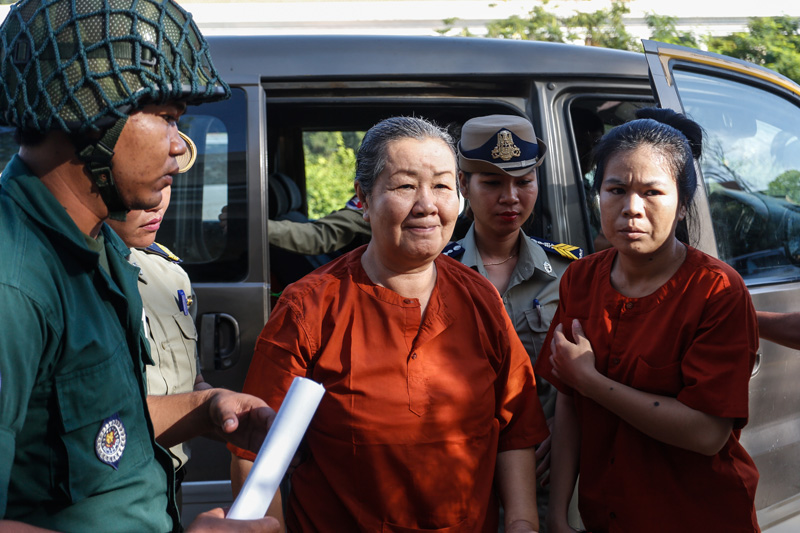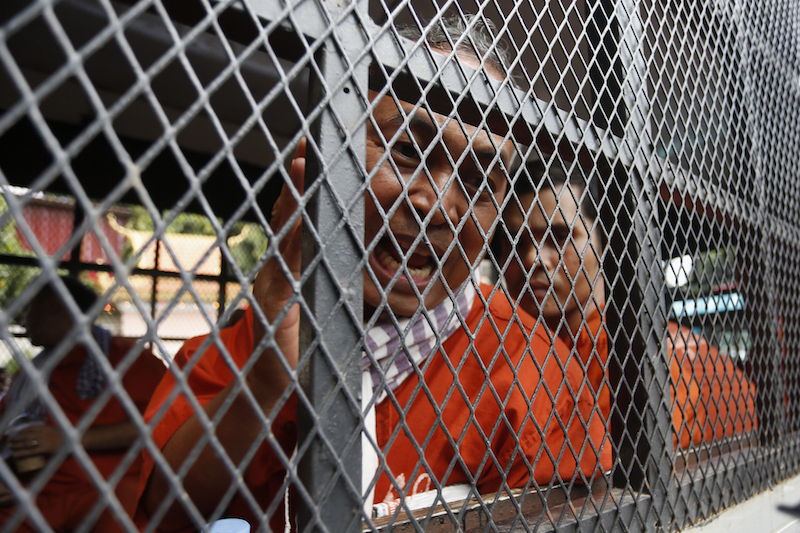If life is difficult for the relatives of the rights workers, they know it’s doubly so for their jailed loved ones.
The Adhoc 5 tell their relatives of cells packed with 40 people, most of them common criminals. They say the food is nearly inedible and many have difficulty getting access to the medication they need to treat a litany of ailments.

Surrounded by drug traffickers, thieves and drunks, Lim Mony “can’t talk to anyone,” according to her daughter Un Bunnary.
The 58-year-old’s only source of comfort in Prey Sar prison is the library.
“Comfortable does not mean clean,” Ms. Bunnary said. “It is big and has a fan and she can read a book in peace.”
All of the relatives interviewed report making prison visits two to three times a week. They take food, medicine and cash.
Men Leakhena, wife of Ny Sokha, said much of the salary she still collects from Adhoc goes to pay for her husband’s prison needs, which total $150 a week. Decent food, clean water and even electricity come with a steep price.
“If you buy a bottle of water, you need to buy the water and the people who buy it for you,” Ms. Leakhena said. “They have food, but they can’t eat it. It’s not that different from dog food.”
Yem Chantha passes along $700 to $800 per month to her husband, Ny Chakrya. She is cagey about why prison life is so expensive.
“If we live in someone’s house and we don’t show kindness, they won’t be happy and take care of us,” she said.

Sorn Keo, deputy director of the general department of prisons’ correctional department, acknowledged overcrowding at the country’s prisons, where roughly 25,000 detainees are held in spaces designed to fit around 18,000, in part because of the ongoing campaign against drug users and dealers.
“What they said is true, but we’re solving it,” he said, declining to cite specific plans.
Mr. Keo said that authorities inspected prison food and found it fully fit for human consumption.
Regarding illicit payments for services in prison, Mr. Keo said: “I want to say that in principle we never advise our officials to take bribes.”
“If it’s true like they said, it’s just an individual issue,” he said. Any guards caught accepting bribes would be punished, he added.
Ms. Chantha also talks of how her husband, Mr. Chakrya, misses the company of his former colleagues who used to drop by, but stopped when prison visits by NGOs were allegedly banned in the past month.
“He seems really lonely,” she said.
Above all else, prison life is emotionally taxing, for both sides.
Every visit involves an awkward charade both relatives and prisoners go through to convince the other that, against all odds, they are doing fine. The conversational tiptoeing spares each side from fretting about problems they are helpless to solve.
“I feel like if I tell him something, it will break his heart,” Ms. Chantha said. “I don’t want him to see the pain of our family.”



